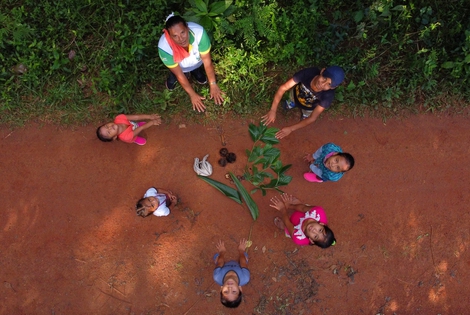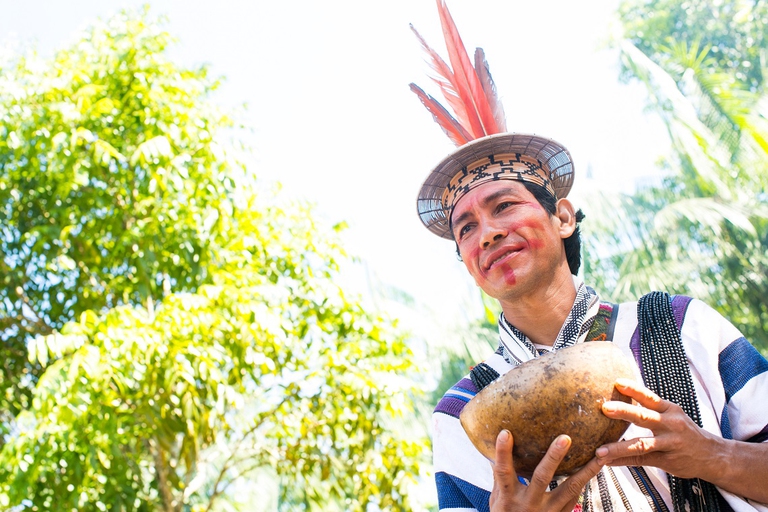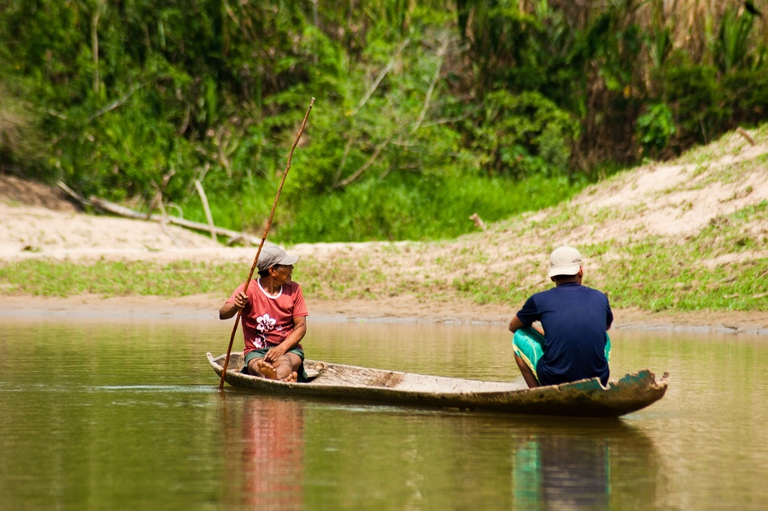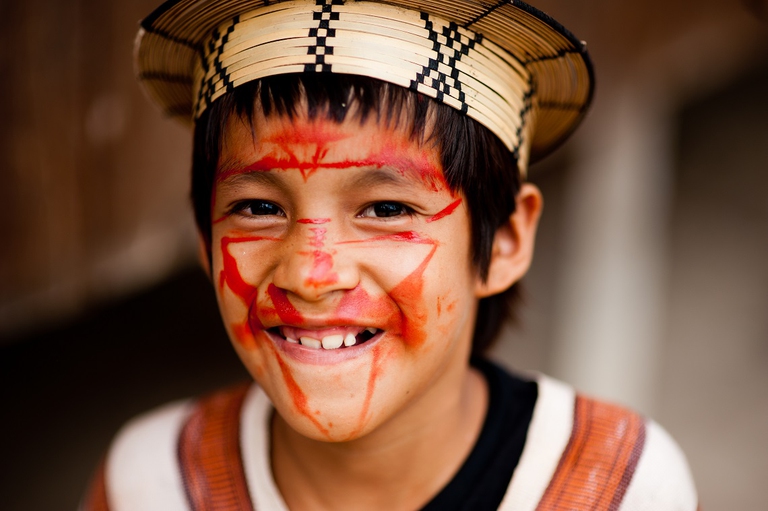
The Amazon became an alternative classroom during the pandemic. Now, the educational forest in Batraja, Bolivia, lives on to teach children and adults the value of nature.
On top of a 2.4 million dollar compensation, the indigenous Ashaninka people will receive an official apology from the companies who deforested their lands in the 1980s.
For over a century, the Ashaninka’s land stretching from Brazil to Peru has been devastated at the hands of rubber tappers, loggers, guerrilla fighters, drug traffickers and oil companies. After years of environmental abuse, the formal adoption of an economic settlement represents a truly historic win for indigenous rights. One, however, that can’t undo the injustices suffered throughout the years.
After enduring an over twenty year long legal battle, Ashaninka living in the Kampa do Rio Amônia reserve in the Brazilian state of Acre, close to the border with Peru, will receive 14 million Brazilian real (around 2.4 million US dollars) in compensation for the deforestation of their lands.
During the 1980s, thousands of mahogany and cedar trees (as well as many other Amazon plant species) were decimated by lumber companies owned by the Cameli family to fuel the European furniture industry. Part of the Ashaninka tribe’s lands were affected by the deforestation that took place between 1981 and 1987. In 1996, the Federal Public Ministry brought a Public Civil Action against the companies responsible for the destruction of the indigenous reserve.
Finally, the rights of this native people were formally recognised by Augusto Aras, Prosecutor General of the Republic, on the 1st of April through the signing of a settlement guaranteeing reparations for crimes committed almost 40 years ago. On top of the financial settlement, the incriminated companies will be required to present an official apology to the Ashaninka tribe.
“This is the first time in the history of Brazilian law that something like this happens,” Ashaninka lawyer Antonio Rodrigo commented the signing of the agreement. “I’m so proud. It was hard, but wonderful,” he added.
The Prosecutor General also recognised the importance of this historic deal. “With this agreement, there is a feeling that we’re building a new moment of peace, harmony and above all understanding that wounds exist to be healed, not perpetuated,” said Aras.
According to the Ashaninka’s lawyer, there’s more to the sentence than granting justice to the group. The settlement marks a key turning point in the safeguarding and protection of native peoples rights, acting as a precedent for thousands of similar cases of environmental crime and destruction.
Read more: A victory for the Matsés people. Pacific E&P stops oil extraction in the Amazon
The Ashaninka will receive compensation via instalments within a five-year time frame. The group announced that it will hold an assembly every year to discuss how to spend the money. The overarching goal is to finance projects “that defend the community, Amazon, indigenous peoples and peoples of the forest”.
Read more: After 500 years of struggle, we won’t stop resisting. The Piaçaguera indigenous’ fight for land and identity in Brazil
“We’re calling for this region to be increasingly respected and valued, for its products to be placed on the market with added value, which will, in turn, serve to guarantee sustainability,” Ashaninka leader Francisco Piyãko explained to Mongabay news. His father, Antônio Piyãko, denounced the loggers’ invasion to the world through an open letter published in 1991.
More than the financial settlement, the Ashaninka value the incriminated company’s official apology for the suffering caused them as well as destruction of their land. “If there had been no acknowledgment of guilt, the indigenous people wouldn’t have taken the deal,” explains Rodrigo, the tribe’s attorney.
According to their leader, the formal apology carries deep meaning and symbolises a victory for all indigenous peoples around the world who have seen their lands and traditions threatened.
Siamo anche su WhatsApp. Segui il canale ufficiale LifeGate per restare aggiornata, aggiornato sulle ultime notizie e sulle nostre attività.
![]()
Quest'opera è distribuita con Licenza Creative Commons Attribuzione - Non commerciale - Non opere derivate 4.0 Internazionale.
The Amazon became an alternative classroom during the pandemic. Now, the educational forest in Batraja, Bolivia, lives on to teach children and adults the value of nature.
A special report from the Yuqui territory delves deep into the dreams, challenges, joys and sadness of one of Bolivia’s most vulnerable indigenous groups.
The Yuqui people of the Bolivian Amazon fight not only to survive in the face of settlers, logging and Covid-19, but to preserve their culture and identity.
Jair Bolsonaro is accused of crimes against humanity for persecuting indigenous Brazilians and destroying the Amazon. We speak to William Bourdon and Charly Salkazanov, the lawyers bringing the case before the ICC.
Our species took its first steps in a world covered in trees. Today, forests offer us sustenance, shelter, and clean the air that we breathe.
Activists hail the decision not to hold the 2023 World Anthropology Congress at a controversial Indian school for tribal children as originally planned.
Autumn Peltier is a water defender who began her fight for indigenous Canadians’ right to clean drinking water when she was only eight years old.
The pandemic threatens some of the world’s most endangered indigenous peoples, such as the Great Andamanese of the Andaman and Nicobar Islands in India.
The Upopoy National Ainu Museum has finally opened. With it the indigenous people of Hokkaido are gaining recognition but not access to fundamental rights.










